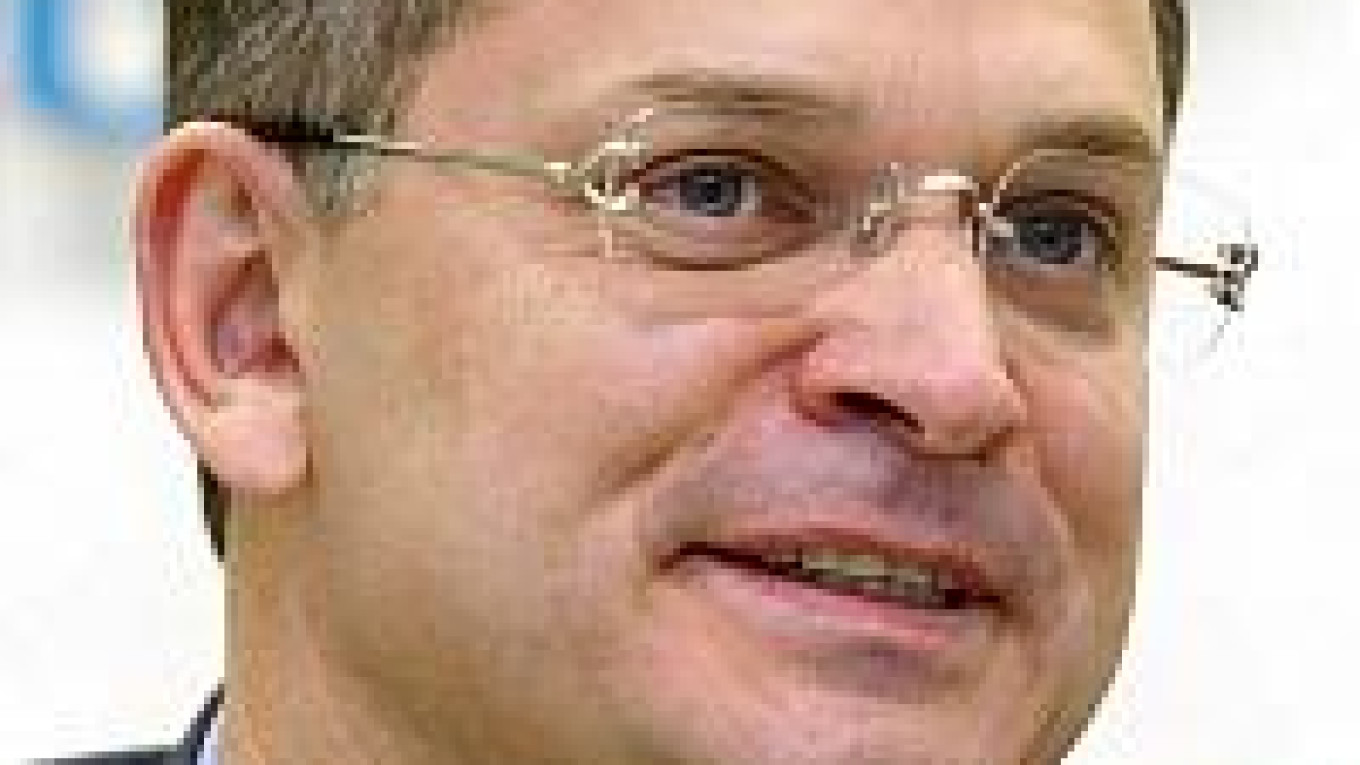Citing a NIKoil prospectus meant only for eurobond investors, Vedomosti splashed out the company's share structure on its front page Thursday. The leaked document confirms the ownership structure of a bank long believed to be connected to the nation's biggest oil producer.
"We have no idea how this information got into the hands of the press," said NIKoil's managing director Alexander Vikhrov, audibly infuriated.
"We're not commenting on the published information and won't say whether it is true or untrue because of an agreement we have with Deutsche Bank, which is underwriting the bond."
"This information was meant for investors only."
The cited document shows that two men own the $3 billion company: LUKoil's Alekperov and NIKoil president Nikolai Tsvetkov.
Tsvetkov controls all of NIKoil's voting shares through NIKoil Kapital and Finansovaya Kompaniya NIKoil, which together own 10 percent of Tovarishchestvo NIKoil, the main asset.
Alekperov and Tsvetkov also directly hold an additional 90 percent of the company, though it is unclear in what proportion to each other.
Legal experts said disclosure of the information could be damaging to the company.
"This could be embarrassing if the information was meant for a limited number of investors," said a securities lawyer at one of Moscow's leading law firms, who wished to remain anonymous.
"It might have an effect on the pricing of the bond and could also bring up issues with securities regulators if this eurobond was meant for the U.S. market. It may result in fines."
In 2002 Alekperov revealed that he owned 10.38 percent of LUKoil. Tsvetkov holds a smaller stake of 5.26 percent in the oil giant, as does LUKoil vice president Leonid Fedun with 4.62 percent.
Fedun was also rumored to have held a stake in NIKoil. A source close to NIKoil said Fedun gradually sold this stake to Tsvetkov.
Fedun denies ever having held a stake in the bank, Vedomosti reported.
All three men made February's ranking of the world's wealthiest people by Forbes magazine.
Forbes ranked Alekperov 186th with $2.7 billion, compared to Tsvetkov and Fedun, who shared 437th place with $1.3 billion each.
A Message from The Moscow Times:
Dear readers,
We are facing unprecedented challenges. Russia's Prosecutor General's Office has designated The Moscow Times as an "undesirable" organization, criminalizing our work and putting our staff at risk of prosecution. This follows our earlier unjust labeling as a "foreign agent."
These actions are direct attempts to silence independent journalism in Russia. The authorities claim our work "discredits the decisions of the Russian leadership." We see things differently: we strive to provide accurate, unbiased reporting on Russia.
We, the journalists of The Moscow Times, refuse to be silenced. But to continue our work, we need your help.
Your support, no matter how small, makes a world of difference. If you can, please support us monthly starting from just $2. It's quick to set up, and every contribution makes a significant impact.
By supporting The Moscow Times, you're defending open, independent journalism in the face of repression. Thank you for standing with us.
Remind me later.


